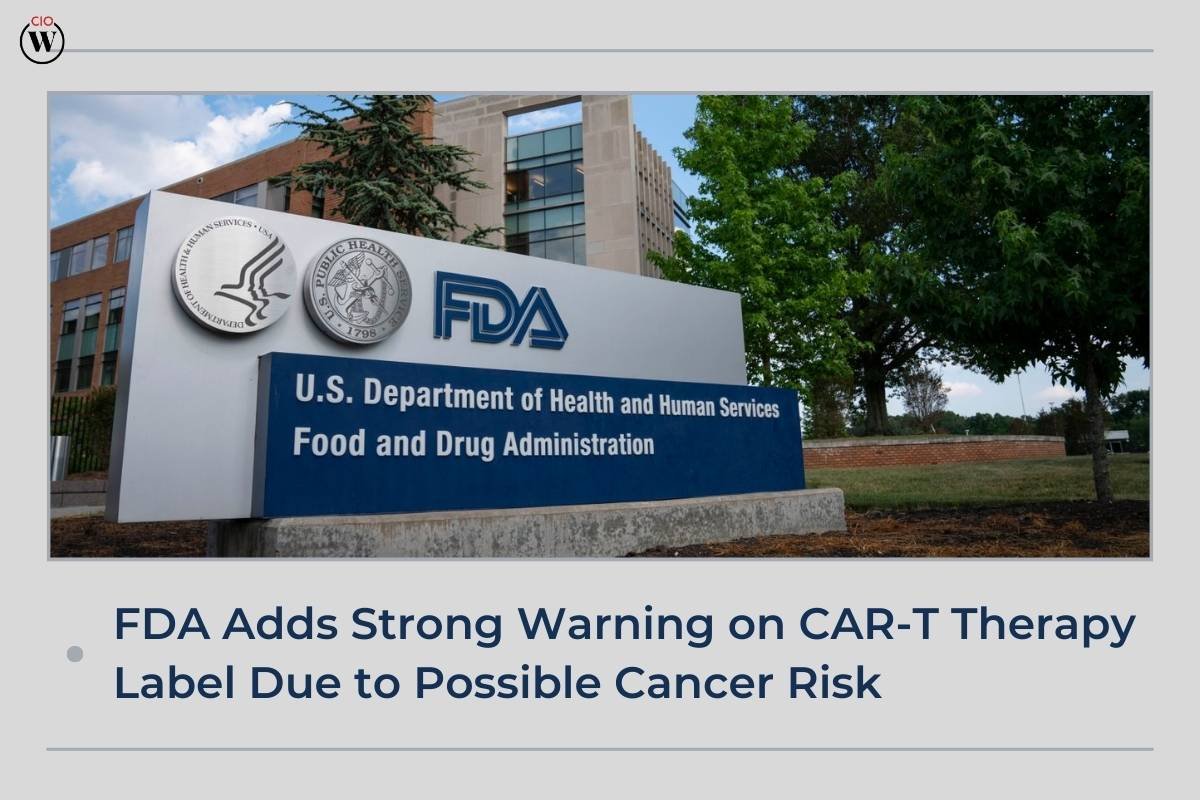Source – CNN
In a significant move this week, the Food and Drug Administration (FDA) has instructed several pharmaceutical companies to include a boxed warning, considered the agency’s most potent safety label, on the prescribing information for Chimeric Antigen Receptor T cell CAR-T Therapy. The FDA raised concerns about the therapy potentially increasing the risk of cancer in individuals undergoing the treatment. Despite the warning, Carly Kempler, an FDA spokesperson, emphasized that the overall benefits of CAR-T products still outweigh their potential risks.
The decision to update the labels was prompted by reports of rare blood cancers in patients previously treated with CAR-T therapy. As of the latest update, the FDA has received 25 reports of such cases. Bruce Levine, a professor in cancer gene therapy at the University of Pennsylvania, suggested that recent abstracts published in the journal Blood indicating a potential cancer risk associated with CAR-T therapy likely influenced the FDA’s decision.
CAR-T Therapy Overview and Effectiveness
CAR-T therapy, short for Chimeric Antigen Receptor T cell therapy, represents a groundbreaking approach to treating certain blood cancers such as leukemia, multiple myeloma, and lymphoma. The treatment involves harvesting a patient’s own immune cells, genetically modifying them in a laboratory to target cancer cells, and reintroducing them into the patient. Experts have hailed CAR-T therapy as highly effective, even curing some patients in challenging cases. The therapy gained FDA approval in 2017 with Novartis’ Kymriah, and since then, five additional CAR-T drugs have been approved.
Responses from Drugmakers and Experts on Possible Cancer Risk
The FDA’s directive specifically targeted five drugmakers—Bristol Myers Squibb, Gilead Sciences’ Kite Pharma, Johnson & Johnson, and Novartis—requiring them to submit proposed label changes within 30 days acknowledging the potential rare blood cancer risk associated with CAR-T therapy. Novartis, in a statement to NBC News, mentioned not finding “sufficient evidence” to support the link between cancer and its treatment, but expressed willingness to collaborate with the FDA to update labels appropriately.
Medical professionals weighed in on the issue, with Dr. Matthew Frigault of Massachusetts General Hospital emphasizing that the FDA looks for signals and associations, not necessarily establishing a direct causation. Despite the label change, experts like Dr. Saad Usmani and Dr. Marcela Maus suggested that the impact on medical practices might be minimal, as CAR-T therapy remains a crucial and effective treatment for many patients. The medical community emphasizes ongoing vigilance and discussions with patients about potential risks associated with various cancer treatments, including CAR-T therapy.









